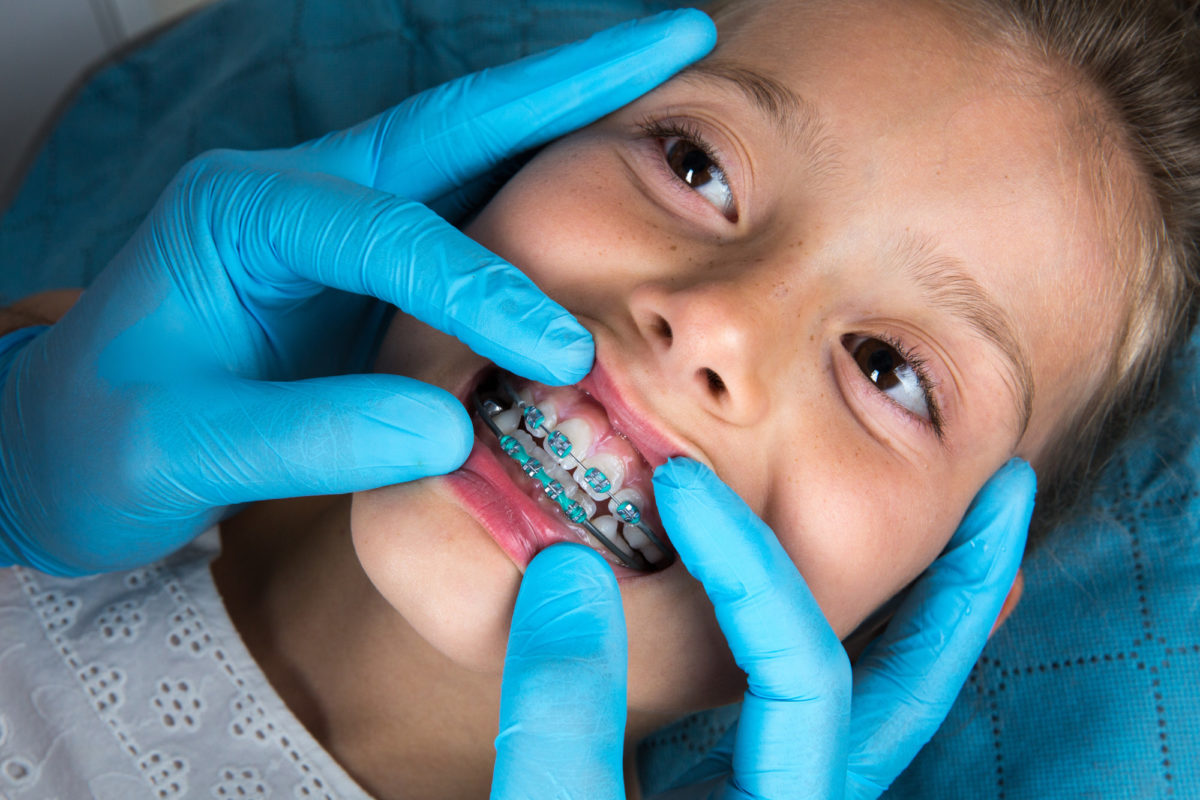10 Tips for Helping Your Child Overcome Fear of the Dentist
Visiting the dentist is a necessary part of maintaining good oral health, but for some children, it can be a source of anxiety and fear. This fear can stem from various reasons, such as previous bad experiences, fear of pain, or the unfamiliarity of the environment. Whatever the reason may be, it’s essential to address your child’s fear of the dentist to ensure that they receive the necessary dental care to maintain their oral health.
Ignoring your child’s fear of the dentist can lead to long-term dental problems, which can affect their quality of life and confidence. As a parent, it’s essential to help your child overcome their fear of the dentist early on to prevent these problems in the future. In this blog post, we’ll provide you with ten helpful tips to make your child’s dental visit a positive and stress-free experience.
Tip 1: Choose a Pediatric Dentist
When it comes to dental care for children, it’s important to choose a pediatric dentist who specializes in treating children. Here’s why:
- Pediatric dentists are specially trained to handle children’s fears and anxieties. They understand how to communicate with children in a way that makes them feel safe and comfortable.
- Pediatric dental offices are designed to be kid-friendly and welcoming, with colorful decor, toys, and games that can help distract and calm your child.
- Pediatric dentists have experience dealing with children of all ages, from infants to teenagers, and can tailor their approach to meet the unique needs of each child.
When choosing a pediatric dentist, here are some tips to keep in mind:
- Ask for recommendations from friends and family who have children.
- Check online reviews and ratings to get an idea of other parents’ experiences.
- Look for a pediatric dentist who is board-certified and has undergone specialized training in pediatric dentistry.
- Visit the office beforehand to get a feel for the environment and see if it’s a good fit for your child.
By choosing a pediatric dentist, you can help ensure that your child’s dental visit is a positive and comfortable experience.
Tip 2: Role Play Beforehand
Role-playing at home can be an effective way to prepare your child for a visit to the dentist. By acting out different scenarios, your child can become more familiar with what to expect during their dental visit. Here’s how you can make it fun:
- Play the role of the dentist and have your child play the patient. Use a toothbrush or a small mirror to pretend to examine their teeth and show them how to open their mouth wide.
- Use simple language to explain what each dental instrument does and how it helps keep their teeth healthy.
- Offer rewards and positive reinforcement for good behavior, such as pretending to give them a sticker or a high-five.
Here are some common dental procedures that you can role-play with your child:
- Teeth cleaning – Show your child how the dentist will use a small mirror and a toothbrush to clean their teeth. Encourage them to open their mouth wide and say “ahh” so the dentist can see inside.
- X-rays – Explain to your child that x-rays are like pictures of their teeth. Use a flashlight or a small camera to show them what an x-ray looks like.
- Filling a cavity – Show your child how the dentist will numb the area around the tooth and use a special drill to remove the decay. Encourage them to practice keeping their mouth open for a few minutes at a time.
By role-playing beforehand, you can help your child feel more comfortable and confident during their actual dental visit.
Tip 3: Use Positive Language
The language you use when talking about the dentist can have a big impact on how your child perceives the experience. Using positive language can help ease their fear and anxiety. Here’s why:
- Positive language can help your child feel more comfortable and confident. It can make them feel like they are in control and that the experience is something to look forward to.
- Negative language, such as “it’s going to hurt” or “it’s going to be scary,” can create unnecessary fear and anxiety.
Here are some examples of positive language you can use during a dental visit:
- “The dentist is going to help keep your teeth healthy and strong.”
- “We get to go to the dentist today and see how clean and shiny your teeth are!”
- “The dentist is going to count your teeth and make sure they are all healthy and strong.”
By using positive language, you can help your child feel more at ease and even excited about their visit to the dentist.
Tip 4: Bring Comfort Items
Bringing comfort items from home can help your child feel more relaxed and comfortable during their dental visit. Here’s why:
- Familiar items can help your child feel more at ease in an unfamiliar environment. It can provide them with a sense of security and comfort.
- Comfort items can also serve as a distraction during the dental procedure, helping your child focus on something positive instead of their fears.
Here are some suggestions for comfort items to bring:
- A stuffed animal or favorite toy
- A blanket or small pillow
- A book or coloring book to help pass the time
Be sure to check with your pediatric dentist beforehand to see if there are any restrictions on what items are allowed in the treatment room. By bringing comfort items, you can help your child feel more relaxed and at ease during their dental visit.
Tip 5: Distract Your Child
Distractions can be a helpful tool in easing your child’s fears during a dental visit. By providing your child with a fun activity, they can focus their attention elsewhere and feel less anxious. Here are some ways to distract your child during a dental visit:
- Bring along a favorite book or magazine to read together. Reading together can provide a sense of comfort and distraction, and it can also help pass the time.
- Bring headphones and let your child listen to music or an audiobook. This can be a great way to provide a distraction while also helping to drown out the sound of dental instruments.
- Play a game or tell a story together. This can help take your child’s mind off of the dental procedure and provide a fun and engaging distraction.
Be sure to choose age-appropriate distractions for your child. Younger children may benefit from simple games or stories, while older children may enjoy more complex activities like puzzles or word games. By providing your child with a distraction, you can help make their dental visit more enjoyable and less stressful.
Tip 6: Stay with Your Child
Staying with your child during a dental visit can help them feel more comfortable and supported. Here’s why:
- Your presence can provide a sense of security and comfort for your child. Knowing that you are there can help ease their fears and anxieties.
- By staying with your child, you can also help them stay calm and relaxed. You can provide reassurance and encouragement throughout the procedure.
Here are some suggestions for how to stay calm and supportive during your child’s dental visit:
- Practice deep breathing exercises together. Deep breathing can help both you and your child relax and stay calm.
- Offer words of encouragement and praise throughout the procedure. Let your child know how proud you are of them for being brave and strong.
- Use a calm and soothing tone of voice when talking to your child. This can help them feel more at ease and comforted.
By staying with your child during their dental visit and providing support and encouragement, you can help make the experience a positive one for both you and your child.
Tip 7: Reward Your Child
Rewarding your child after a successful dental visit can help them feel positive and encouraged about future visits. Here’s why:
- A reward can serve as a positive reinforcement for your child’s behavior during the dental visit. It can help them associate the experience with a positive outcome.
- A reward can also help your child look forward to future dental visits, knowing that they will be rewarded for their bravery and good behavior.
Here are some examples of rewards you can offer your child:
- A small toy or trinket that they have been wanting
- A special activity, such as going to the park or getting ice cream
- Extra screen time or a movie night at home
Be sure to choose a reward that is appropriate for your child’s age and interests. By offering a reward, you can help make the dental visit a positive experience for your child and encourage good behavior in the future.
Tip 8: Practice Good Dental Hygiene at Home
Practicing good dental hygiene at home can help prevent dental problems and reduce the need for future visits. Here’s why:
- Regular brushing and flossing can help prevent cavities and gum disease. By establishing good dental hygiene habits early on, you can help your child maintain healthy teeth and gums.
- Good dental hygiene at home can also help reduce the need for future dental visits. By preventing dental problems before they occur, you can reduce the likelihood of needing more extensive dental procedures in the future.
Here are some tips on how to make dental hygiene fun for children:
- Let your child pick out their own toothbrush and toothpaste. Giving your child some control over their dental hygiene routine can help make it more enjoyable.
- Play music or sing songs while brushing teeth. This can help make the activity more fun and engaging.
- Make dental hygiene a family activity. Brush and floss together as a family to make it a positive and fun experience.
By practicing good dental hygiene at home and making it fun for your child, you can help prevent dental problems and reduce the need for future dental visits.
Tip 9: Address Your Own Dental Fear
As a parent, it’s important to be aware of how your own fear of the dentist can affect your child’s perception. Here’s why:
- Children often pick up on their parent’s emotions and reactions. If you are anxious or fearful about going to the dentist, your child may become anxious or fearful as well.
- If your child sees that you are comfortable and relaxed during dental visits, they are more likely to feel the same way.
Here are some suggestions on how to address your own dental fear:
- Talk to your dentist about your fears. Your dentist can help you understand the procedures and alleviate any concerns you may have.
- Consider therapy or counseling to address your dental fears. Talking to a mental health professional can help you develop coping strategies and overcome your fears.
- Practice relaxation techniques, such as deep breathing or meditation, before and during dental visits. This can help you stay calm and relaxed during the procedure.
By addressing your own dental fear, you can help create a more positive and comfortable experience for both you and your child during dental visits.
Tip 10: Seek Professional Help if Needed
In some cases, a child’s fear of the dentist may be severe or affecting their daily life. If this is the case, it may be necessary to seek professional help. Here’s why:
- A mental health professional can help your child develop coping strategies and overcome their fear of the dentist. They can also provide support and guidance to you as a parent.
- Addressing your child’s fear of the dentist can help prevent dental problems and ensure that they receive necessary dental care.
Here are some signs that it may be time to seek professional help:
- Your child’s fear of the dentist is severe and affecting their daily life.
- Your child is unable to receive necessary dental care due to their fear.
- Your child’s fear has persisted despite your efforts to address it.
If you think your child may benefit from professional help, there are many resources available. Talk to your child’s pediatrician or dentist for a referral, or search online for a mental health professional who specializes in treating dental anxiety in children. Remember, addressing your child’s fear of the dentist is an important step in ensuring their overall health and well-being.
Conclusion
Taking your child to the dentist can be a daunting experience, especially if they have a fear of the dentist. However, with the right strategies and support, you can help your child overcome their fear and receive the necessary dental care they need. Here are the 10 tips for helping your child overcome fear of the dentist:
- Choose a pediatric dentist
- Role play beforehand
- Use positive language
- Bring comfort items
- Distract your child
- Stay with your child
- Reward your child
- Practice good dental hygiene at home
- Address your own dental fear
- Seek professional help if needed
By implementing these tips, you can help your child feel more comfortable and confident during dental visits. Remember, addressing the fear early is key to preventing dental problems in the future. So don’t wait, start implementing these tips today!




